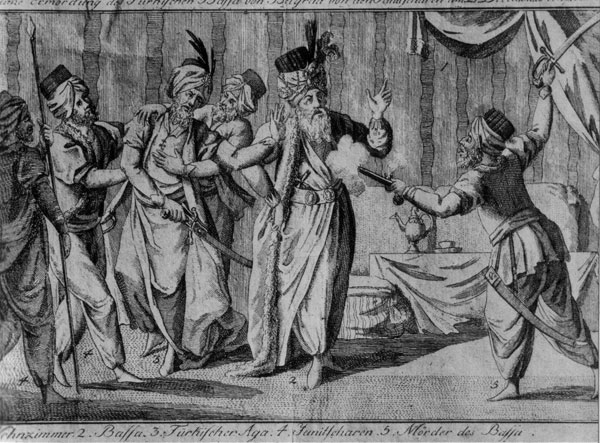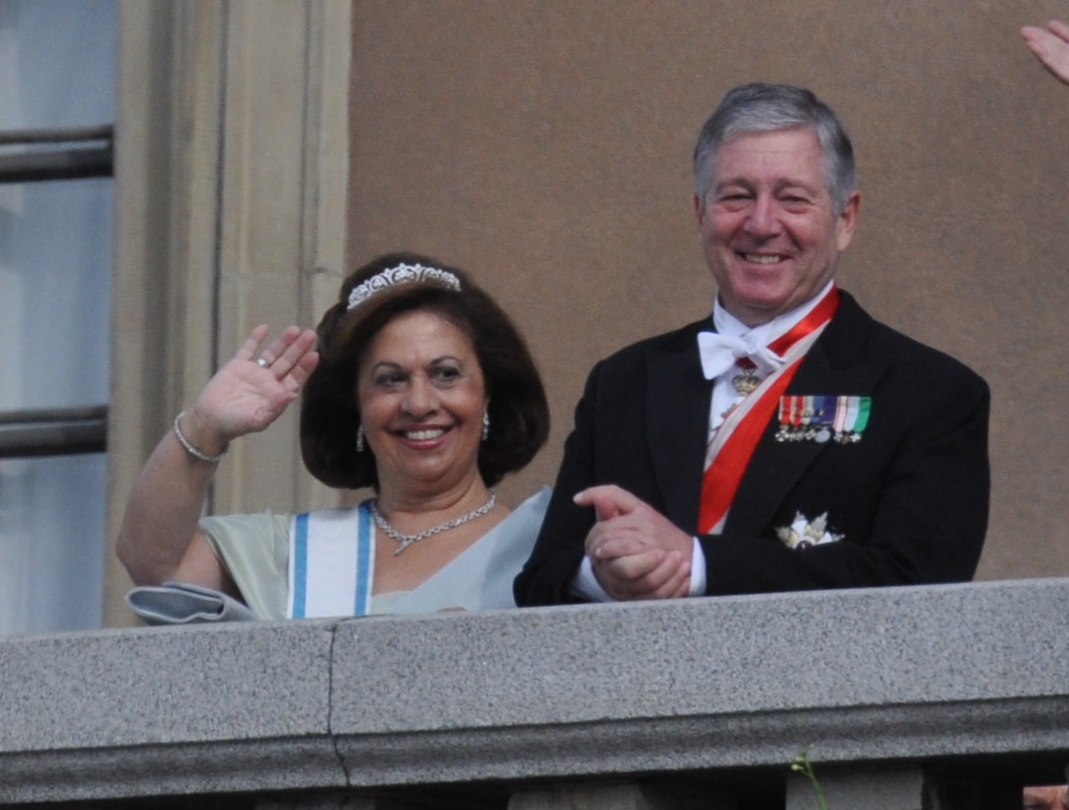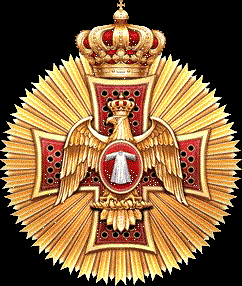|
Order Of Karađorđe's Star
The Order of Karađorđe's Star ( sr, Orden Karađorđeve zvezde, italics=yes, sr-Cyrl, Орден Карађорђеве звезде) is Serbia's highest civilian and military decoration. It originated in the Kingdom of Serbia, and was initially awarded exclusively to Serbian citizens in return for services rendered to the Serbian monarchy, the Serb people and the Serbian state, though it is now bestowed upon Serbs and non-Serbs alike. During the Balkan Wars and World War I, the Order was mostly awarded for acts of bravery on the battlefield. The post-war Kingdom of Yugoslavia retained the Order, and it was awarded by the Yugoslav government-in-exile until the end of World War II, in some cases to individuals who collaborated with the Axis powers. Following the war, the monarchy was outlawed and a communist government came to power. Along with other monarchist symbols, the Order was suppressed during the administration of Josip Broz Tito, and replaced with communist decorations ... [...More Info...] [...Related Items...] OR: [Wikipedia] [Google] [Baidu] |
Karađorđević Dynasty
The Karađorđević dynasty ( sr-Cyrl, Динасија Карађорђевић, Dinasija Karađorđević, Карађорђевићи / Karađorđevići, ) or House of Karađorđević ( sr-Cyrl, Кућа Карађорђевић, Kuća Karađorđević) is the name of the deposed Serbian and former Yugoslav royal family. The family was founded by Karađorđe Petrović (1768–1817), the ''Veliki Vožd'' () of Serbia during the First Serbian uprising of 1804–1813. In the course of the 19th century the relatively short-lived dynasty was supported by the Russian Empire and was opposed to the Austria-Hungary-supported Obrenović dynasty. The two houses subsequently vied for the throne for several generations. Following the assassination of the Obrenović King Alexander I of Serbia in 1903, the Serbian Parliament chose Karađorđe's grandson, Peter I Karađorđević, then living in exile, to occupy the throne of the Kingdom of Serbia. He was duly crowned as King Peter I, a ... [...More Info...] [...Related Items...] OR: [Wikipedia] [Google] [Baidu] |
Josip Broz Tito
Josip Broz ( sh-Cyrl, Јосип Броз, ; 7 May 1892 – 4 May 1980), commonly known as Tito (; sh-Cyrl, Тито, links=no, ), was a Yugoslav communist revolutionary and statesman, serving in various positions from 1943 until his death in 1980. During World War II, he was the leader of the Yugoslav Partisans, often regarded as the most effective resistance movement in German-occupied Europe. He also served as the president of the Socialist Federal Republic of Yugoslavia from 14 January 1953 until his death on 4 May 1980. He was born to a Croat father and Slovene mother in the village of Kumrovec, Austria-Hungary (now in Croatia). Drafted into military service, he distinguished himself, becoming the youngest sergeant major in the Austro-Hungarian Army of that time. After being seriously wounded and captured by the Russians during World War I, he was sent to a work camp in the Ural Mountains. He participated in some events of the Russian Revolution in 1917 and the ... [...More Info...] [...Related Items...] OR: [Wikipedia] [Google] [Baidu] |
May Coup (Serbia)
The May Coup ( sr, Мајски преврат, Majski prevrat) was a coup d'état involving the assassination of the Serbian King Alexander Obrenović and his consort Queen Draga inside the Royal Palace in Belgrade on the night of . This act resulted in the extinction of the Obrenović dynasty that had ruled the Kingdom of Serbia since the middle of the 19th century. A group of Serbian Army officers led by captain Dragutin Dimitrijević (Apis) organized the assassination. After the May Coup, the throne passed to King Peter I of Serbia. Along with the royal couple, the conspirators killed prime minister Dimitrije Cincar-Marković, minister of the army and general-adjutant Lazar Petrović. The coup had a significant influence on Serbia's relations with other European powers; the Obrenović dynasty had mostly allied with Austria-Hungary, while the Karađorđević dynasty had close ties both with Russia and with France. Each dynasty received ongoing financial support fr ... [...More Info...] [...Related Items...] OR: [Wikipedia] [Google] [Baidu] |
Obrenović Dynasty
The House of Obrenović ( sr-Cyrl, Обрeновић, Obrenovići / Обреновићи, ) was a Serbian dynasty that ruled Serbia from 1815 to 1842, and again from 1858 to 1903. They came to power through the leadership of their progenitor Miloš Obrenović I in the Serbian Uprising of 1815–1817 against the Ottoman Empire, which led to the formation of the Principality of Serbia in 1817. The Obrenović dynasty were traditionally allied with Austria-Hungary and opposed the Russian-supported Karađorđević dynasty. The family's rule came to an end in a coup d’état by the military conspirators, often known today as the Black Hand, who invaded the royal palace and murdered King Alexander I, who died without an heir. The National Assembly of Serbia invited Peter Karađorđević to become king of Serbia. After the breakup of Yugoslavia, some descendants from Jakov Obrenović, Miloš Obrenović's half-brother, declared themselves successors of the Royal House of Obrenović ... [...More Info...] [...Related Items...] OR: [Wikipedia] [Google] [Baidu] |
Order Of Miloš The Great
The Order of Miloš the Great ( sr, Орден Милоша Великог), was an Order of the Kingdom of Serbia The Kingdom of Serbia ( sr-cyr, Краљевина Србија, Kraljevina Srbija) was a country located in the Balkans which was created when the ruler of the Principality of Serbia, Milan I, was proclaimed king in 1882. Since 1817, the Princi .... Founded in 1898 by King Alexander I of Serbia, the order was named in honor of Miloš Obrenović, the leader of the Second Serbian Uprising, and founder of the House of Obrenović. The order was suppressed in 1903 by King Peter I of Serbia, a member of the competing House of Karađorđević. References {{DEFAULTSORT:Order of Milos the Great Orders, decorations, and medals of Serbia Awards established in 1898 Awards disestablished in 1903 ... [...More Info...] [...Related Items...] OR: [Wikipedia] [Google] [Baidu] |
Order Of The Cross Of Takovo
The Order of the Cross of Takovo was a Serbian state order. History It was instituted in the Principality of Serbia in 1865 to mark the 50th anniversary of the Second Serbian Uprising against the Ottoman Empire, which had started in Takovo, Serbia. The decree that established the Cross and Silver Medal was signed on 22 May 1865 by Mihailo Obrenović III, Prince of Serbia. The Order was suppressed in 1903. Notable recipients * Albert I of Belgium * Archduke Albrecht, Duke of Teschen * Alexander of Battenberg * Alfred, Duke of Saxe-Coburg and Gotha * Baudouin of Belgium * Jovan Belimarković * Petar Bojović * Count Otto von Bray-Steinburg * Vlaho Bukovac * Mikhail Chernyayev * Dimitrije Cincar-Marković * Nićifor Dučić * Dimitrije Đurić * Grand Duke Dmitry Konstantinovich of Russia * Ernest II, Duke of Saxe-Coburg and Gotha * Ernst I, Duke of Saxe-Altenburg * Gaston Errembault de Dudzeele (died 1929) * Géza Fejérváry * Franz Joseph I of Austria * Frede ... [...More Info...] [...Related Items...] OR: [Wikipedia] [Google] [Baidu] |
First Serbian Uprising
The First Serbian Uprising ( sr, Prvi srpski ustanak, italics=yes, sr-Cyrl, Први српски устанак; tr, Birinci Sırp Ayaklanması) was an uprising of Serbs in the Sanjak of Smederevo against the Ottoman Empire from 14 February 1804 to 7 October 1813. Initially a local revolt against renegade janissaries who had seized power through a coup, it evolved into a war for independence (the Serbian Revolution) after more than three centuries of Ottoman rule and short-lasting Austrian occupations. The janissary commanders murdered the Ottoman Vizier in 1801 and occupied the sanjak, ruling it independently from the Ottoman Sultan. Tyranny ensued; the janissaries suspended the rights granted to Serbs by the Sultan earlier, increased taxes, and imposed forced labor, among other things. In 1804 the janissaries feared that the Sultan would use the Serbs against them, so they murdered many Serbian chiefs. Enraged, an assembly chose Karađorđe as leader of the uprising, and ... [...More Info...] [...Related Items...] OR: [Wikipedia] [Google] [Baidu] |
Peter I Of Serbia
Peter I ( sr-Cyr, Петар I Карађорђевић, Petar I Кarađorđević; – 16 August 1921) was the last king of Serbia, reigning from 15 June 1903 to 1 December 1918. On 1 December 1918, he became the first king of the Serbs, Croats and Slovenes, and he held that title until his death three years later. Since he was the king of Serbia during a period of great Serbian military success, he was remembered by the Serbs, Serbian people as King Peter the Liberator, and also as Old King. Peter was Karađorđe's grandson and third son of Persida Nenadović and Prince Alexander Karađorđević, Prince of Serbia, Alexander Karađorđević, who was forced to abdicate. Peter lived with his family in exile. He fought with the French Foreign Legion in the Franco-Prussian War. He joined as a volunteer under the alias Peter Mrkonjić in the Herzegovina uprising (1875–1877) against the Ottoman Empire. He married Princess Zorka of Montenegro, daughter of Nicholas I of Monteneg ... [...More Info...] [...Related Items...] OR: [Wikipedia] [Google] [Baidu] |
Royal Decree
A decree is a legal proclamation, usually issued by a head of state (such as the president of a republic or a monarch), according to certain procedures (usually established in a constitution). It has the force of law. The particular term used for this concept may vary from country to country. The ''executive orders'' made by the President of the United States, for example, are decrees (although a decree is not exactly an order). Decree by jurisdiction Belgium In Belgium, a decree is a law of a community or regional parliament, e.g. the Flemish Parliament. France The word ''décret'', literally "decree", is an old legal usage in France and is used to refer to executive orders issued by the French President or Prime Minister. Any such order must not violate the French Constitution or Civil Code, and a party has the right to request an order be annulled in the French Council of State. Orders must be ratified by Parliament before they can be modified into legislative Acts. ... [...More Info...] [...Related Items...] OR: [Wikipedia] [Google] [Baidu] |
Flora Sandes
Flora Sandes (, 22 January 1876 – 24 November 1956) was a British woman who served as a member of the Royal Serbian Army in World War I. She was the only British woman officially to serve as a soldier in that war. Initially a St. John Ambulance volunteer, she travelled to the Kingdom of Serbia, where she was welcomed and formally enrolled in the Serbian army. She was subsequently promoted to the rank of Sergeant major, and, after the war, to Captain. She was decorated with seven medals. Biography Early life Flora Sandes was born on 22 January 1876 in Nether Poppleton, Yorkshire, the youngest daughter of an Irish family. Her father was Samuel Dickson Sandes (1822–1914), the former rector of Whitchurch, County Cork, and her mother was Sophia Julia (née Besnard). When she was nine years old, the family moved to Marlesford, Suffolk; and later to Thornton Heath, near Croydon, Surrey. As a child she was educated by governesses. She enjoyed riding and shooting and said that she ... [...More Info...] [...Related Items...] OR: [Wikipedia] [Google] [Baidu] |
Alexander, Crown Prince Of Yugoslavia
Alexander, Crown Prince of Yugoslavia ( sr, Александар Карађорђевић, Престолонаследник Југославије; born 17 July 1945 in London), is the head of the House of Karađorđević, the former royal house of the defunct Kingdom of Yugoslavia and its predecessor the Kingdom of Serbia. Alexander is the only child of King Peter II and his wife, Princess Alexandra of Greece and Denmark. He held the position of crown prince in the Democratic Federal Yugoslavia for the first four-and-a-half months of his life, from his birth until the declaration of the Federal People's Republic of Yugoslavia later in 1945. In public he is also claiming the crowned royal title of "Alexander II Karađorđević" ( sr-Cyrl, Александар II Карађорђевић / ''Aleksandar II Karađorđević'') although the kingdom was abolished. Born and raised in the United Kingdom, he enjoys close relationships with his relatives in the British royal family ... [...More Info...] [...Related Items...] OR: [Wikipedia] [Google] [Baidu] |
Dynastic Order
A dynastic order, monarchical order, or house order is an order under royal patronage. Such an order is bestowed by, as a legitimate , a sovereign or the head of a once-sovereign ruling family. These are often considered part of the cultural patrimony of the ruling family. Dynastic orders were often founded or maintained to reward service to a monarch or their subsequent dynasty. A national or state order is the equivalent term for orders (e.g., of merit) conferred by sovereign states but not bestowed by ruling dynasties. In personal gift of sovereign Dynastic orders are under the exclusive control of a monarch and are bestowed without the advice of the political leadership (prime minister or cabinet). A recent report by the British Government mentioned that there is "one remaining exercise that has been identified of the Monarch's truly personal, executive prerogative: that is, the conferment of certain honours that remain within he Sovereign’sgift (the Orders of Merit, ... [...More Info...] [...Related Items...] OR: [Wikipedia] [Google] [Baidu] |



_-_ribbon_bar.png)

.jpg)


